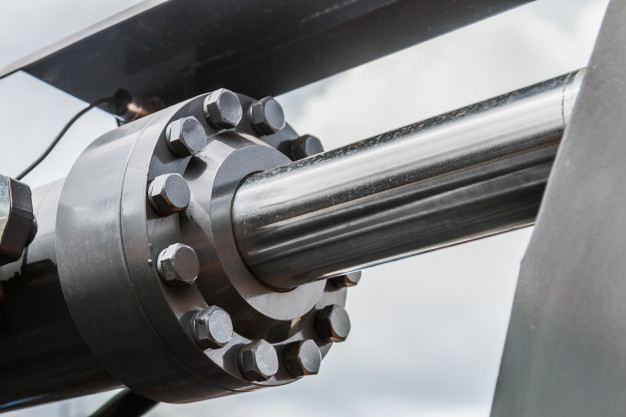No matter you have a construction business or a machine shop, hydraulic components are used to run your business smoothly.Amongst all, hydraulic pumps have a versatile role; they are employed in almost every production system, like plastic mold injection machines, conveyor belt and so on. That being the case, they need proper and timely maintenance for smooth running.
However, even with regular upkeep, it can feel pressurised from the inside, which can cause failures. In this case, hydraulic pump repairs should be done as soon as possible. For that, knowing signs that something is amiss is significant. The good news is, hydraulic pumps do provide us with the signals that need attention.
Here are 7 common signals that show the pump is actually failing.
- Extra and abnormal noisesHearing excessive noises from your machinery is not an ideal situation. Though hydraulic pumps contain fluids that flow over the system in high pressure and speed, compelling them to make noise, it is specifically designed to work silently. But with the daily manufacturing process, its parts deteriorate due to wear and tear. At this point, you may observe abnormal noises coming from the machine.
So, if you observe banging or knocking sounds coming from your pump, then you may need hydraulic services as something is wrong with your hydraulic pump. - Interior and exterior leaksHydraulic pumps are designed to pass the fluid to the system through a tube, which means fluid should remain in the tubes for proper functioning. However, if you find the fluids anywhere inside the pump instead of in the tubes, then there’s surely something off. Either a seal or valve is loose or has some serious issues. However, interior leaks can be difficult to spot.
But if the fluid is seen coming out of the pump, then the damage has progressed. And immediate action is required to repair or salvage the pump. - Failing sealsWhen this issue arises on a constant basis, your hydraulic pump may be working with a bent or misaligned rod. This damage could be less to more serious, depending upon its extent of the damage.
However, only a skilled industrial hydraulic service provider can repair your existing equipment. So, call in professionals, and take the most out of it, minimising your costs. - Excessive fluid heatHydraulic systems need a specific level of viscosity to operate as it is supposed to do. Its purpose is to dissipate generated heat; however, it shouldn’t be producing excessive heat to cause fluid to reach high temperatures. This can lead to thinning of the fluid, which prevents proper lubrication, and this may cause pump leaks, pump efficiency reduction and poor performance.
If the fluid temperatures are above 180°F or 82°C, then it means the system is not cooled properly. Therefore, ensure that proper air is passing around the reservoir of the hydraulic system. As well, check the heat exchanger. If still, something is off, then call in a professional. - Water contaminationIf you notice the milky like substance in the hydraulic fluid, then that’s a sure-shot sign of water contamination. The foremost reason is the build-up of condensation on the fluid reservoir walls due to the change in temperature from warm days to cool nights. This can also lead to corrosion of the pump and its crucial components, shortening their life.
You can prevent them by changing the fluid frequently and draining the water from the reservoir. However, if the damage has already taken place, then you’ll need a professional to repair it. - No flow of fluidWell, this is a serious issue that can occur due to several reasons. The very first thing to do for determining the source of the issue is to check where the fluid flow is stopping. If the fluid is stopping at the inlet, then it could be due to a clogged line or dirty strainers. If it is at the exit of the outlet, then your pump motor needs a replacement.
Therefore, we would recommend making sure the pump is rotating correctly and valves are incorrect place. Otherwise, it can damage the whole pump, resulting in hydraulic pump repairs or full replacement. - Poor or slow performanceIs your system operating slow? When it begins to work more slowly than normal, this could be an indicator that your pump is starting to fail. The source could be the fluid is too thick due to cold temperatures or the use of inappropriate fluid. Another reason could be air trapped in the system or restrictions in the line because of dirty hydraulic filters. Sometimes, hydraulic cylinders could be also the reason, which calls for hydraulic cylinder services.
As soon as your system begins to work slow, call in professionals to repair your pump or fix the issues.
Conclusion
No business owner would like their system to break down in the middle of the production. For that, you need to make sure your hydraulic system is working smoothly. Something else to bear in mind is to track down the sources of problems that will need some troubleshooting. In that case, the above-mentioned common signals would of great help. Look for such signs, and if you find any, call an expert for hydraulic servicing or repair.









 Erika Rhein, the contributing author and the professional blogger by profession. With years of experience, I now focus on writing blogs on varied niches. Being a research enthusiast, I like to provide my readers with the useful and informative articles on the different topics they are looking for. I aim to create a difference through my writing.
Erika Rhein, the contributing author and the professional blogger by profession. With years of experience, I now focus on writing blogs on varied niches. Being a research enthusiast, I like to provide my readers with the useful and informative articles on the different topics they are looking for. I aim to create a difference through my writing.
0 Comments